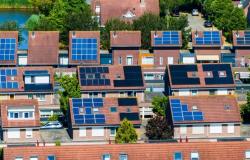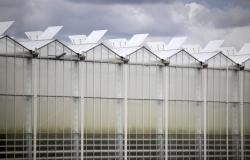2 apr 2024 om 15:53 Update: 38 min. geleden
Dutch people connected to the heating network pay hundreds of euros more every year than users in other countries. According to knowledge institute TNO, Dutch rates have also risen faster than elsewhere in recent years.
For example, taking into account the price ceiling, you paid an average of 66 euros per gigajoule in the Netherlands last year. In Germany, Sweden, Finland and Denmark, the four other countries TNO examined, prices were considerably lower.
The Swedes pay the least. Last year they spent an average of 23 euros per gigajoule. Of the other three countries, the Germans were the most expensive with an average rate of 38 euros. But that is still 28 euros per gigajoule less than in our country. With an average annual consumption of more than 30 gigajoules, the Dutch quickly spend 800 euros more per year.
The Netherlands has been more expensive for years
The fact that the Netherlands is an outlier is not an incident. TNO research shows that the heating network in our country will certainly be more expensive from 2019 than in the other countries studied.
The cause of this is not entirely clear, the researchers say. This is because the knowledge institute has no insight into the actual costs incurred by suppliers. “It is therefore not possible to say what the substantiation or background of the increase is.”
They do point out that in the Netherlands the heat rate is linked to the gas price. And because gas has become significantly more expensive in recent years, the heat price in our country has also risen.
This is not the case in other countries. “In Denmark, the rates are based on the cost of heat. A heating network that runs on biomass will therefore not notice the increased gas prices in that country,” the researchers say.
With heating network you cannot choose a supplier
Those who are connected to the heating network, also called district heating, receive residual heat from industry via a pipe system. These households cannot choose their supplier, unlike those who use gas for heating, for example.
To prevent Dutch people from paying too much, regulator ACM determines every year a maximum price that suppliers can charge for district heating. But this rate is linked to the gas price.
This should prevent heat users from paying more than households connected to gas. But in practice this has led to higher rates. The ACM therefore wants to get rid of that link. There are also voices in politics to let go of this link.
Disconnection can lead to higher prices
However, the regulator thinks that will not happen from next year. This is because suppliers must provide financial information to the ACM and must do so in accordance with certain accounting rules. If the link is actually released, the companies will first have to adjust their accounting.
The ACM also warns that additional measures are needed if gas and heat prices are truly decoupled. Suppliers then determine their rates based on the actual costs, which may be higher than the gas price.






